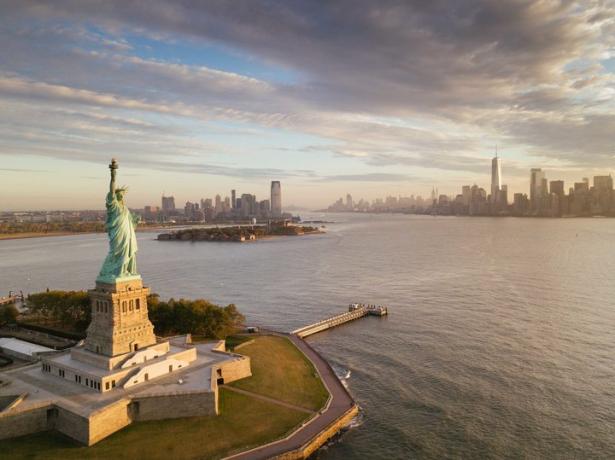DAVOS, Switzerland – People in the United States and other developed countries are losing faith in the capitalist system to improve their lives, according to a new global poll commissioned by the World Economic Forum, published on the eve of its annual meeting in Davos, Switzerland.
Almost two-thirds of U.S. respondents said it was no longer commonplace for hard work to be a sure path from poverty to riches, with only 10 percent saying it was extremely common.
The lack of faith in the current system to deliver upward mobility was even more marked in Western Europe, where only a fifth of respondents said it was common to be able to start poor and become wealthy through hard work.
Developing nations have the most faith in upward mobility, according to the poll, which surveyed more than 10,000 people over 29 countries. India showed the most optimism, with 69 percent of those polled saying they believe the existing system allows them to have control over improving their economic destiny.
Nearly 40 percent of respondents in India said they believe upward mobility was extremely common; in Japan and Italy, just 2 percent did, while in Spain this figure was just 1 percent.
While economies in the West have largely stagnated, there is a strong belief in India that its time has come and that, rather than a fear of losing what they have, many believe they are just half a step from making it.
Further evidence that residents of developed countries are finding that the current economic structures are no longer supporting their lives comes from the WEF’s flagship annual global risks report, published last week. The report goes beyond macro issues to also focus on how individual citizens are being negatively affected by trends such as automation, a lack of wage growth and the expansion of the gig economy.
The risk report, compiled with the help of about 1,000 experts, says that the dividing line between work and the rest of people’s lives has been blurred and that many families are forced to juggle several jobs while coping with other stressful issues such as child care, long commutes and caring for elderly relatives.
The WEF points to an analysis in Harvard Business Review that found that almost half of American workers surveyed said they are “often or always exhausted due to work” — up by a third in 20 years.
The WEF report highlights a link between automation and mental health issues and points out that “wider changes in the structure of work and in its place in society are a further source of potential stress. Job security and stability are in decline in many advanced economies, with real earnings growth sluggish or stagnating and less predictable ‘gig economy’ work expanding.”
So what is to be done?
The WEF emphasizes the importance of considering well-being rather than profit and growth at any cost. It warns that if we continue as we are, “beyond the economic risks, there are potential political and societal implications. For example, a world of increasingly angry people would be likely to generate volatile electoral results and to increase the risk of social unrest.”
A positive change in mindset could be advanced, in part, by changing the very idea of the American dream, which has traditionally been an ideal that anyone in the U.S. can make a good and prosperous life for themselves and their families through hard work.
This version of the American dream was created in the 1950s to encourage consumption and economic growth, according to Sarah Churchwell, a professor of American literature and public understanding of the humanities at the University of London. She said it is time for those on the political left to reclaim its original meaning.
The American dream “has long belonged to people on the right, but those on the left who are arguing for things like universal health care have a historical claim to the phrase, too,” she said in a recent interview with Smithsonian.
“The original ‘American Dream’ was not a dream of individual wealth; it was a dream of equality, justice and democracy for the nation. The phrase was repurposed by each generation, until the Cold War, when it became an argument for a consumer capitalist version of democracy. Our ideas about the ‘American Dream’ froze in the 1950s. Today, it doesn’t occur to anybody that it could mean anything else,” Churchwell said.
For more content and to be part of the “This New World” community, follow HuffPost's Facebook page.
HuffPost’s “This New World” series is funded by Partners for a New Economy and the Kendeda Fund. All content is editorially independent, with no influence or input from the foundations. If you have an idea or tip for the editorial series, send an email to thisnewworld@huffpost.com


Spread the word